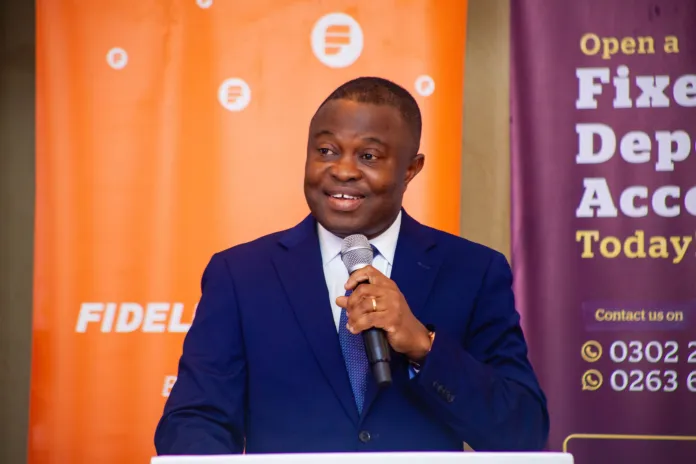Read also:
- Ghana’s Stabilisation Fund Falls Short: PIAC Raises Concerns Over Government’s Breach of Legal Cap
- Ghana Poised for Historic Milestone: A Female President on the Horizon
- Ghana’s DVLA to Introduce Biometric International Documents for Seamless Travel
- National Security Cracks Down on Illegal Mining in Eastern Region
- Global Leaders Must Prioritize Women’s Empowerment for Sustainable Development – Mahama.
Fidelity Bank Ghana has emphasized the need for immediate and sustained reform in Ghana’s energy sector to address the structural challenges hindering the country’s economic growth. Speaking at the B&FT Thought Leadership Series Energy Roundtable, Atta Yeboah Gyan, Deputy Managing Director for Operations & Support Functions at Fidelity Bank, described fixing the energy sector as a national imperative, not a matter of choice.
The energy sector is currently weighed down by over $3 billion in legacy debt and liquidity challenges, which Mr. Gyan attributed to a vicious cycle of inefficiencies, including delayed tariff adjustments, non-payment by public entities, and a weakened Cedi that inflates energy costs. He emphasized that what Ghana’s power ecosystem needs today is not more temporary fixes, but sustainable financing structures, underpinned by transparency, innovation, and collaboration.
Mr. Gyan highlighted the importance of capital discipline, governance, and transparency in the energy sector, citing the role of financial institutions like Fidelity Bank in providing temporary relief through initiatives like the Energy Sector Levies Act (ESLA) bonds. However, he emphasized the need for more sustainable financing models driven by data-driven decision-making and institutional accountability.
To achieve this, Mr. Gyan called for deeper collaboration between the financial sector, policymakers, and energy operators. He also outlined several priority areas for action, including smart investments in renewable and hybrid systems, digitization of collections, and the gradual expansion of smart metering systems to plug revenue leakages. Additionally, he stressed the need for clear, cost-reflective pricing frameworks that give investors and financiers the confidence to commit long-term capital.
Fidelity Bank has reaffirmed its commitment to sustainable finance, introducing renewable asset financing products to empower individuals and businesses to adopt cleaner energy solutions. The Bank is also exploring innovative tools such as green financing, blended capital, and ESG-linked instruments to scale up investments in renewable energy and strengthen local energy businesses.
In conclusion, Mr. Gyan urged greater alignment among policy, finance, and purpose to transform Ghana’s energy sector into one defined by resilience, efficiency, and inclusivity. “The challenges before us are complex, but not insurmountable,” he said. “At Fidelity Bank, we remain committed to walking this journey with Ghana; to power homes and industries, but, more importantly, to power confidence, productivity, and growth. Together, we can build an energy sector that is not just functional, but future-ready.”
epos MBN360 news




